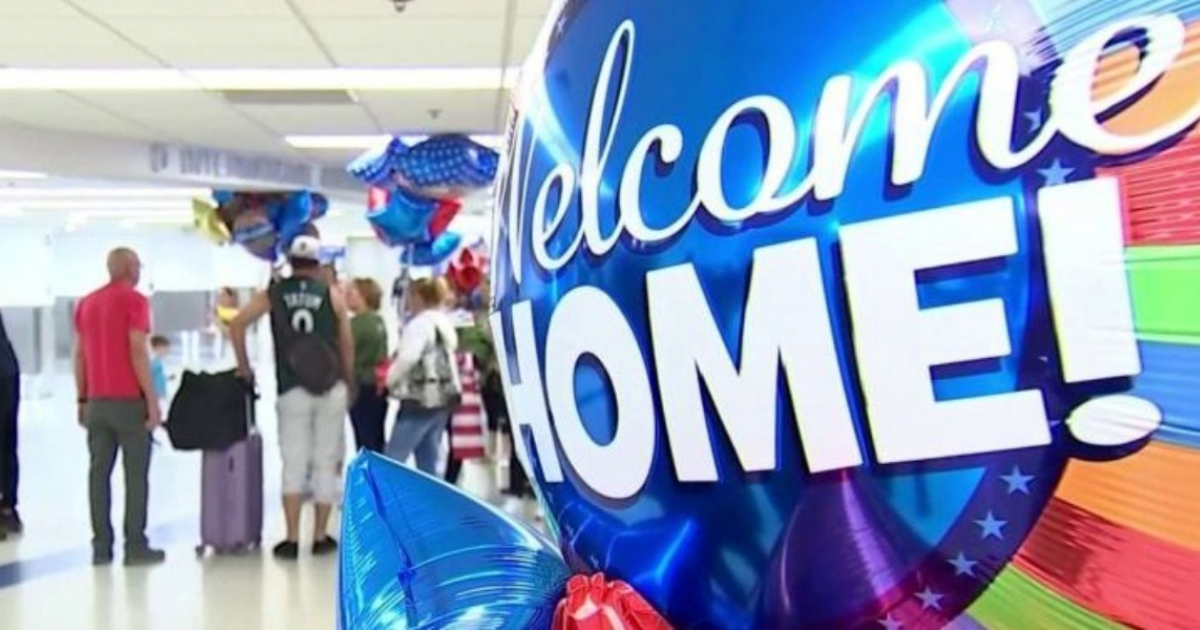More than 106,000 Cubans received approval to travel to the United States since the humanitarian parole program began in January 2023 through June of this year, according to official figures from the Customs and Border Protection (CBP) released this Monday.
By the end of June, a total of 106,757 Cubans, 205,026 Haitians, 93,325 Nicaraguans, and 118,706 Venezuelans were granted authorization to travel, according to the agency. Of the Cuban cases examined and approved, 104,130 arrived in the U.S. and received parole. Additionally, 194,027 Haitians, 86,101 Nicaraguans, and 110,541 Venezuelans achieved the same status, according to CBP data.
Impact of Biden Administration's Policy
The statistics, released a year and a half after the Biden administration implemented the regulation, indicate that by the end of the previous month, 494,799 Cubans, Haitians, Nicaraguans, and Venezuelans have legally arrived on commercial flights and were granted parole under the program, which allows a maximum of 30,000 visas per month for these nationalities.
"This is part of the Administration's strategy to combine expanded legal pathways with stronger consequences to reduce irregular migration," emphasized the CBP statement. "These processes have prevented hundreds of thousands from migrating irregularly, often at the hands of smuggling networks."
The figures also reveal that 5,930 Cubans entered the U.S. with humanitarian parole in June, as 98,200 Cuban citizens had benefited from the program by May. However, Haitians remain the most favored group in the granting of humanitarian parole and the fastest-growing in their entry into U.S. territory among the four nationalities receiving the benefit.
The approval of travel permits does not automatically guarantee parole upon appearing before Customs and Border Protection authorities, who have the authority to grant or deny entry into the country.
This Monday, the CBP also disclosed that 17,563 Cubans entered through U.S. land and maritime borders in June, the lowest number in the first nine months of this fiscal year, which began last October.
In early June, President Joe Biden signed an executive order preventing irregular migrants from receiving asylum in the U.S. after crossing the border illegally. The White House stated that these "actions will be in effect when high levels of encounters with illegal migrants at the southern border exceed the capacity to generate timely consequences."
The measures approved by Biden facilitate the expulsion of migrants without a legal basis to stay in the U.S. Another goal is to reduce the burden on Border Patrol agents.
Frequently Asked Questions About Humanitarian Parole for Cubans
Here are some common questions and answers regarding the humanitarian parole program for Cubans and other affected nationalities.
What is humanitarian parole?
Humanitarian parole is a temporary authorization granted to individuals to enter the United States for urgent humanitarian reasons or significant public benefit.
How many Cubans have been approved for humanitarian parole?
As of June 2023, over 106,000 Cubans have received approval for humanitarian parole.
Does approval of a travel permit guarantee entry into the U.S.?
No, approval of a travel permit does not automatically guarantee parole upon arrival. Customs and Border Protection authorities have the final say in granting or denying entry.
What are the goals of the Biden administration's new measures?
The new measures aim to prevent irregular migration and reduce the burden on Border Patrol agents by facilitating the expulsion of migrants without a legal basis to stay in the U.S.
